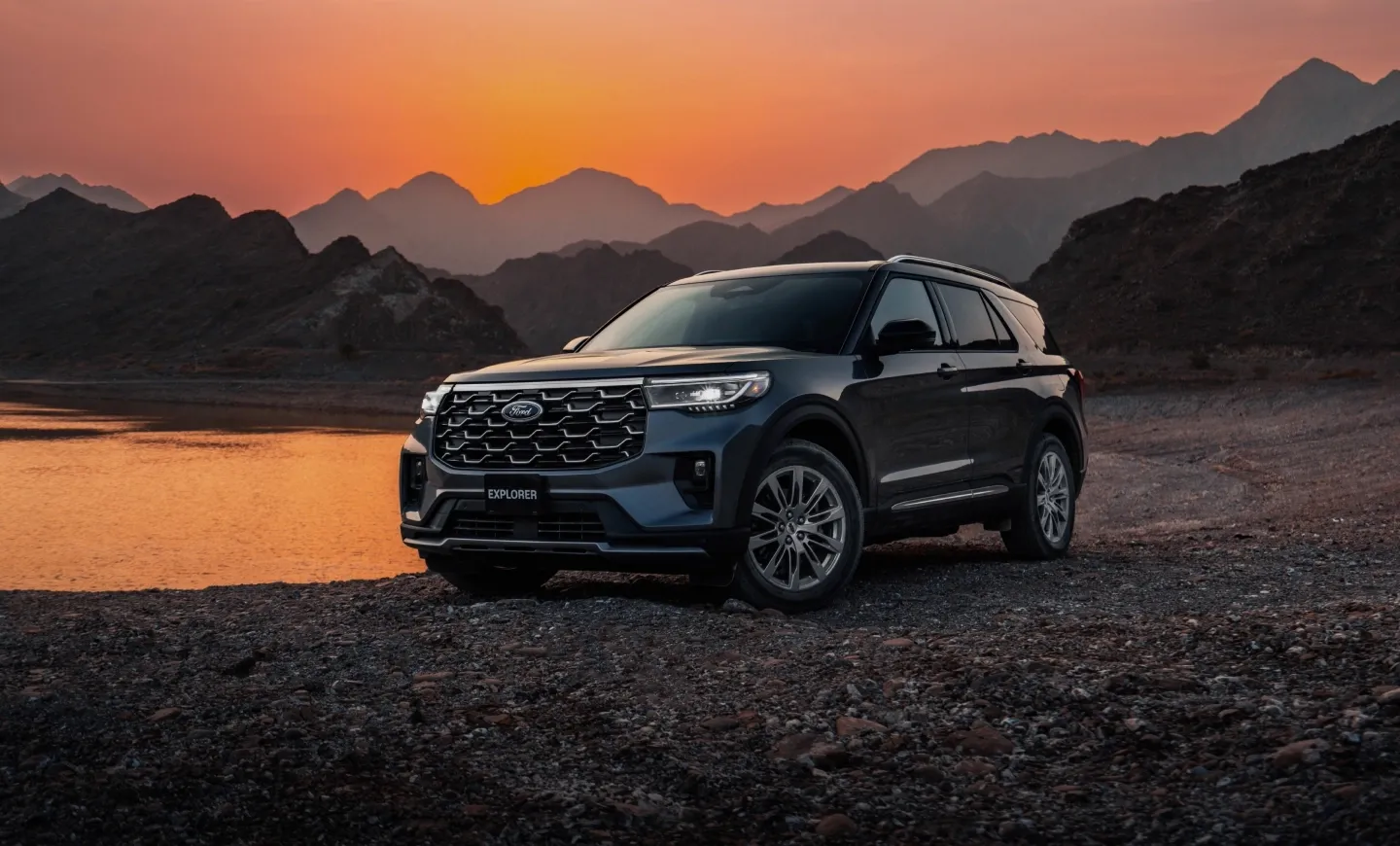Large SUVs are a popular choice for families, adventurers, and anyone needing a vehicle that combines space, power, and versatility. Among these, the Ford Explorer has carved out a significant reputation as a reliable and capable option. But how does it balance the benefits and drawbacks that come with the territory of large SUVs? Here’s a detailed analysis of what makes the Ford Explorer stand out and where it might fall short.

The Benefits of Large SUVs: Where the Ford Explorer Shines
1. Ample Space and Comfort
One of the most notable advantages of large SUVs is their spacious interiors, and the Ford Explorer is no exception. With three rows of seating, the Explorer accommodates up to seven passengers comfortably, making it an ideal choice for families and groups. Its generous cargo space provides ample room for luggage, sports equipment, or any gear required for road trips.
The Explorer also offers premium comfort features, such as optional leather upholstery, heated and ventilated seats, and tri-zone climate control. These amenities ensure that all passengers enjoy a luxurious and relaxing ride.
2. Robust Towing Capacity
Large SUVs are known for their towing capabilities, and the Ford Explorer excels in this area. Properly equipped, it can tow up to 5,600 pounds, making it suitable for hauling trailers, boats, or even small campers. This capability makes it an excellent choice for outdoor enthusiasts and those who require a vehicle with substantial pulling power.
3. Off-Road and All-Weather Performance
Equipped with an advanced all-wheel-drive system and a terrain management system, the Explorer is built to handle various conditions. From sandy dunes to snow-covered roads, it provides stability and control. Its rugged design, complemented by features like hill descent control and selectable drive modes, ensures confidence during off-road adventures.

4. Elevated Driving Position and Visibility
The Explorer’s higher driving position offers superior road visibility, enhancing driver confidence and safety. This is especially beneficial in busy urban environments or on winding rural roads, where a clear view of the surroundings is crucial.
The Drawbacks of Large SUVs: Challenges for the Ford Explorer
1. Reduced Fuel Efficiency
One of the most significant drawbacks of large SUVs is their fuel consumption, and the Ford Explorer, while more efficient than some competitors, is no exception. Its larger engine options and heavier build contribute to a lower fuel economy compared to smaller vehicles or crossovers. This can be a concern for cost-conscious buyers or those prioritizing environmental sustainability.The Explorer, however, tries to mitigate this issue with its EcoBoost engines. The 2.3L I-4 EcoBoost engine offers an impressive 12.7 km/L, while the more powerful 3.0L V6 EcoBoost achieves 11.3 km/L—competitive for its class.
2. Maneuverability in Tight Spaces
Large SUVs like the Explorer can be challenging to navigate in crowded urban areas or tight parking spots. While its steering is responsive, the overall size of the vehicle may require extra effort when maneuvering in confined spaces. Parking assist features help mitigate this challenge but do not eliminate it entirely.
3. Higher Purchase and Maintenance Costs
The initial price tag of the Ford Explorer is higher than that of smaller SUVs or sedans. The Explorer's starting price of approximately $38,000 (AED 140,000) is reasonable for its features, but higher trims can reach $56,000 (AED 206,000). Additionally, maintenance and repair costs, as well as the expense of larger tires and specialized parts, can add up over time. Buyers should factor in these costs when evaluating the overall affordability of owning a large SUV.
4. Environmental Impact
Large SUVs generally have a larger carbon footprint than smaller, more fuel-efficient vehicles. Despite advancements in technology, including hybrid options in some Explorer trims, the environmental impact remains a concern for eco-conscious buyers.
How the Ford Explorer Balances These Aspects
The Ford Explorer strikes a balance between the benefits and drawbacks of large SUVs by offering versatile trims and configurations. Buyers can choose between models focused on luxury, performance, or efficiency, ensuring a tailored experience.
- Performance Options: The Explorer’s range of engines, including a 3.0L EcoBoost V6, delivers a mix of power and efficiency. For those prioritizing fuel savings, hybrid models offer improved mileage while maintaining capability.
- Technology Integration: Advanced features like adaptive cruise control, lane-keeping assist, and a 360-degree camera enhance safety and ease of use, mitigating some of the challenges associated with large SUV size.
- Luxury Touches: Premium trims, such as the Platinum or King Ranch editions, include high-end materials, larger infotainment displays, and enhanced sound systems, elevating the overall driving experience.
Conclusion
The Ford Explorer embodies the essence of a large SUV, offering ample space, towing capabilities, and off-road performance while navigating challenges like fuel efficiency and maneuverability. Its ability to adapt to diverse needs, from family road trips to rugged adventures, sets it apart in the competitive large SUV market.
While it does come with drawbacks typical of its class, the Explorer’s thoughtful design and versatile options make it a compelling choice for those seeking a capable and reliable large SUV. Whether you’re a family looking for comfort, an adventurer needing capability, or someone who values a commanding driving experience, the Ford Explorer proves to be a well-rounded contender in the world of large SUVs.
Stay tuned to carprices.ae for more updates and in-depth articles.


